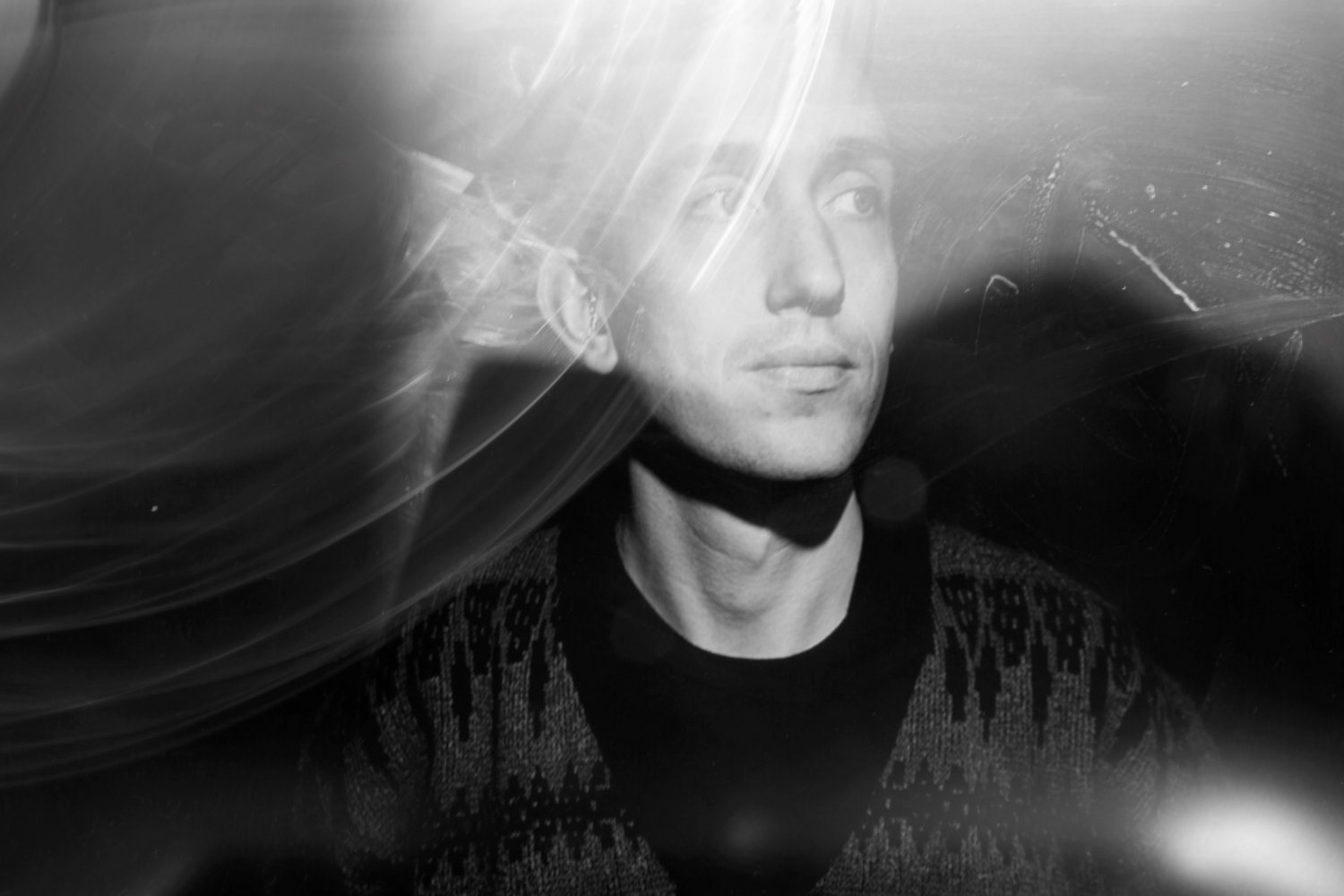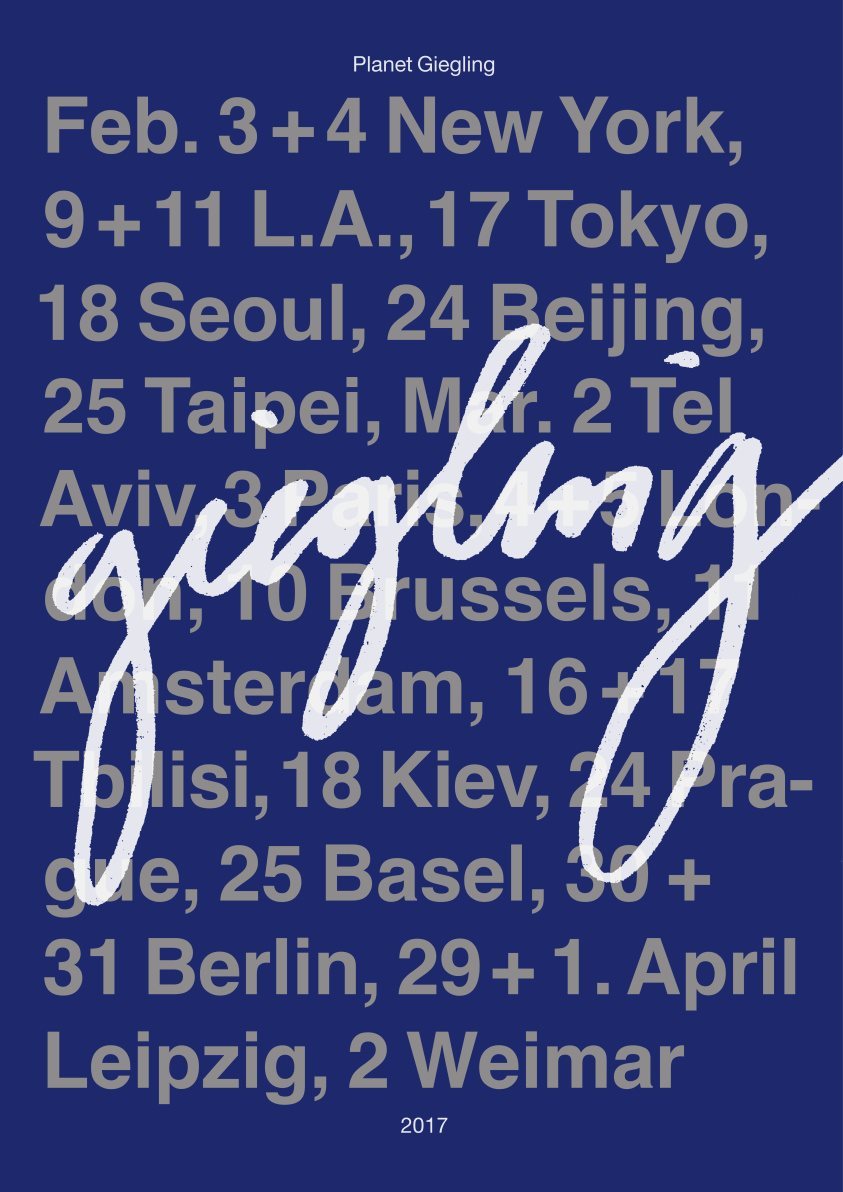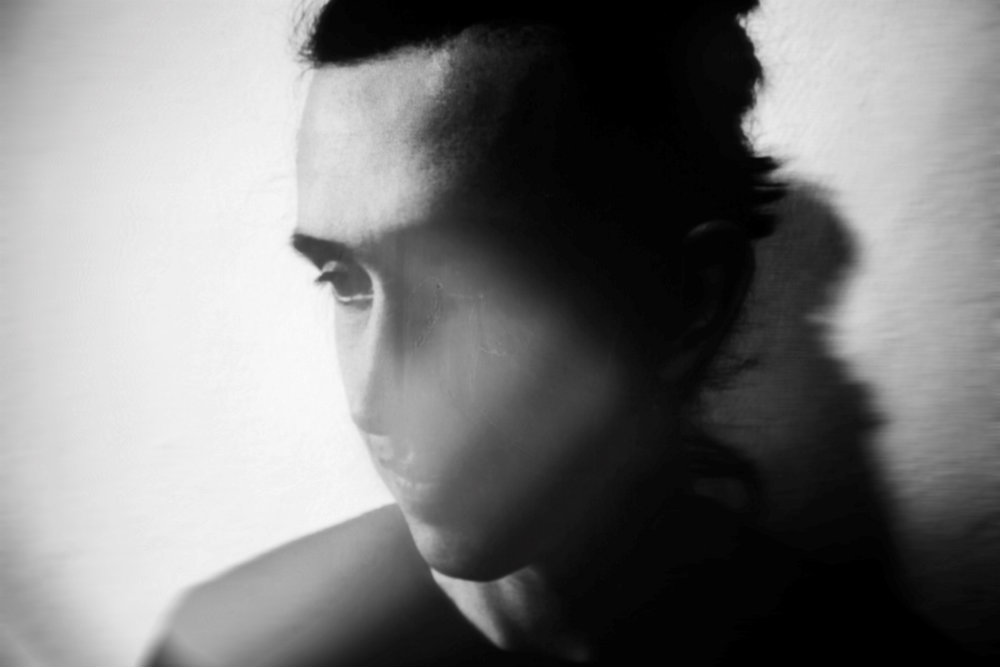News
In Depth: Innocence and Influences with Giegling’s Edward
 If you look closely at any cover of Edward’s most recent EP on Giegling, you’ll see a cartoon image of birds flying across the sun, most likely created using crayons and colouring pencils. Every sleeve for Birds was hand-drawn by young children, and it gives an accurate impression of how Edward (also known as Gilles Aiken) and the rest of his label crew operate.
Much of Aiken’s music is based on samples and edits, which he playfully manipulates into a blend of psychedelic and ambient house. He never brings too much equipment for his live performances, because not doing so lends him more opportunity to play spontaneously as if he was mixing records. Earlier this year he toured across the world with the rest of Giegling, something he likened to a trip from his school days.
When we called Aiken for a Skype conversation ahead of his Farringdon debut on 1st July, he talked to us more about the future of Giegling, how Krautrock shaped his understanding of techno, and the creative process behind his music.
If you look closely at any cover of Edward’s most recent EP on Giegling, you’ll see a cartoon image of birds flying across the sun, most likely created using crayons and colouring pencils. Every sleeve for Birds was hand-drawn by young children, and it gives an accurate impression of how Edward (also known as Gilles Aiken) and the rest of his label crew operate.
Much of Aiken’s music is based on samples and edits, which he playfully manipulates into a blend of psychedelic and ambient house. He never brings too much equipment for his live performances, because not doing so lends him more opportunity to play spontaneously as if he was mixing records. Earlier this year he toured across the world with the rest of Giegling, something he likened to a trip from his school days.
When we called Aiken for a Skype conversation ahead of his Farringdon debut on 1st July, he talked to us more about the future of Giegling, how Krautrock shaped his understanding of techno, and the creative process behind his music.
 Earlier this year you embarked on a world tour alongside the rest of Giegling. Were there any particular highlights of that period of time away for you?
There were some highlights obviously, but overall the whole tour was a big experiment for us. As you can imagine, with a crew of 15 people flying everywhere, there was a lot of organisation. We were also often in tight confines, without much sleep, and under a lot of stress. The biggest experiment was whether we would all get along as a group, or end up arguing a lot.
It went really well and we were really surprised because we took a big risk, but we were tied together because of all the great experiences we had. For me, that was the biggest highlight: the whole group enjoying spending such a prolonged period of time together. It was also the initial idea of the tour – after working on our own solo projects, we wanted to focus on the perspective of the label, our communication, and how we were all in sync with our initial ethos.
It certainly sounds more involved than a regular tour…
Much more so, at least I think so. It’s rare that a regular tour sees 15 people working at every event. We were working on a big scale and more often than not we’d all be performing. In a way, it felt like going on a school holiday, but only with your friends in the class. Another effect of the tour was that everyone was making music, and we were influenced by hearing one another every night. I got to hear fresh material from Vril or Ateq, while they heard me, so we were always inspiring each other.
Where do you see Giegling heading in the future?
The world tour was intense – we will tour again for sure, even if on a smaller scale. The tour helped us realise that Giegling’s strength isn’t in any one individual, but the ideas that come from the whole group. Without this group aspect, I don’t think it would be as attractive as it has become. It’s hard to say where we will all be in the future, but this group idea will always be the most important aspect.
Was there any symbolism to the title of your LP Into a Better Future?
I don’t know how well known this is, but the artwork is actually a photo of my father holding me as a child. The album was also recorded while my girlfriend was pregnant, and it came out when my child was born. With so many new things happening in my life, the LP was kind of a naïve way to address my fears. I had just had a child, and luckily around the same time the label was getting more recognition too.
It seems like this was when you started playing live more often too. Was this something you were always hoping for the opportunity to do?
I love playing live – it’s interesting for my productions. It gives me the opportunity to try different things, and then come back into the studio with new ideas. I find it hard playing live too often – listening to so much of my own music every day can become really draining. Generally I prefer playing live on special occasions, or for Giegling showcases. My live set is actually closer to a DJ set than other live acts. For me the freest way to act spontaneously is to have a lot of chaotic elements stored on my computer, so when they’re put together it’s closer to a DJ set.
Do you find more satisfaction in playing your own music to people or unearthing quality records people don’t know?
If I have a really new track I’ve made and want to play, it can be a great feeling. There are also instances where it can work in a different way than I thought of. Equally, I can get the same feeling with any other record. The excitement of this ‘new thing’ doesn’t always come from my own tracks. If I find a particularly good obscure track, I often make an edit so it feels more like my own.
Editing and sampling is an important part of your work – can you talk more about your production process?
All of my music as both Edward and Desert Sky is very sample-based. Although I don’t use much equipment when performing live, in my studio I only use hardware. I use 3 plugins, but apart from synths and drum machines there are a lot of samples as you can hear. If I hear a really great old record I often sample or edit it. For my DJ sets I do a lot of edits, mostly used only by me.
Your music is often described as psychedelic, where does this influence come from?
I would mainly point to the Krautrock movement, it’s probably the main thing I draw from. While it’s very experimental, there are also many repetitive themes, which has some parallels with techno.
Was this before getting into electronic music?
I actually didn’t start listening to Krautrock until later on. It hit me that I’d never paid attention to it – I knew some stuff, but it was actually techno first, then I got into Krautrock because I saw so many references in the 4/4 music I’d heard. It was like a blueprint for the earliest techno records in a way, but artists like Can explored many different directions. Before techno though I was inspired by Gilles Peterson – when I started DJing I used to play a lot of Latin jazz, funk, soul and disco.
Earlier this year you embarked on a world tour alongside the rest of Giegling. Were there any particular highlights of that period of time away for you?
There were some highlights obviously, but overall the whole tour was a big experiment for us. As you can imagine, with a crew of 15 people flying everywhere, there was a lot of organisation. We were also often in tight confines, without much sleep, and under a lot of stress. The biggest experiment was whether we would all get along as a group, or end up arguing a lot.
It went really well and we were really surprised because we took a big risk, but we were tied together because of all the great experiences we had. For me, that was the biggest highlight: the whole group enjoying spending such a prolonged period of time together. It was also the initial idea of the tour – after working on our own solo projects, we wanted to focus on the perspective of the label, our communication, and how we were all in sync with our initial ethos.
It certainly sounds more involved than a regular tour…
Much more so, at least I think so. It’s rare that a regular tour sees 15 people working at every event. We were working on a big scale and more often than not we’d all be performing. In a way, it felt like going on a school holiday, but only with your friends in the class. Another effect of the tour was that everyone was making music, and we were influenced by hearing one another every night. I got to hear fresh material from Vril or Ateq, while they heard me, so we were always inspiring each other.
Where do you see Giegling heading in the future?
The world tour was intense – we will tour again for sure, even if on a smaller scale. The tour helped us realise that Giegling’s strength isn’t in any one individual, but the ideas that come from the whole group. Without this group aspect, I don’t think it would be as attractive as it has become. It’s hard to say where we will all be in the future, but this group idea will always be the most important aspect.
Was there any symbolism to the title of your LP Into a Better Future?
I don’t know how well known this is, but the artwork is actually a photo of my father holding me as a child. The album was also recorded while my girlfriend was pregnant, and it came out when my child was born. With so many new things happening in my life, the LP was kind of a naïve way to address my fears. I had just had a child, and luckily around the same time the label was getting more recognition too.
It seems like this was when you started playing live more often too. Was this something you were always hoping for the opportunity to do?
I love playing live – it’s interesting for my productions. It gives me the opportunity to try different things, and then come back into the studio with new ideas. I find it hard playing live too often – listening to so much of my own music every day can become really draining. Generally I prefer playing live on special occasions, or for Giegling showcases. My live set is actually closer to a DJ set than other live acts. For me the freest way to act spontaneously is to have a lot of chaotic elements stored on my computer, so when they’re put together it’s closer to a DJ set.
Do you find more satisfaction in playing your own music to people or unearthing quality records people don’t know?
If I have a really new track I’ve made and want to play, it can be a great feeling. There are also instances where it can work in a different way than I thought of. Equally, I can get the same feeling with any other record. The excitement of this ‘new thing’ doesn’t always come from my own tracks. If I find a particularly good obscure track, I often make an edit so it feels more like my own.
Editing and sampling is an important part of your work – can you talk more about your production process?
All of my music as both Edward and Desert Sky is very sample-based. Although I don’t use much equipment when performing live, in my studio I only use hardware. I use 3 plugins, but apart from synths and drum machines there are a lot of samples as you can hear. If I hear a really great old record I often sample or edit it. For my DJ sets I do a lot of edits, mostly used only by me.
Your music is often described as psychedelic, where does this influence come from?
I would mainly point to the Krautrock movement, it’s probably the main thing I draw from. While it’s very experimental, there are also many repetitive themes, which has some parallels with techno.
Was this before getting into electronic music?
I actually didn’t start listening to Krautrock until later on. It hit me that I’d never paid attention to it – I knew some stuff, but it was actually techno first, then I got into Krautrock because I saw so many references in the 4/4 music I’d heard. It was like a blueprint for the earliest techno records in a way, but artists like Can explored many different directions. Before techno though I was inspired by Gilles Peterson – when I started DJing I used to play a lot of Latin jazz, funk, soul and disco.
 Did you ever have an epiphany moment when you started going out to clubs?
That moment for me was moving to Berlin. My first time going to Ostgut for example, before it became Berghain. I moved to Berlin 15 years ago – it wasn’t the ‘old’ techno scene, but it was still pretty raw. Ostgut and Bar25 were both formative in bringing me to a point where I wanted to play straight house and techno. There was always a big excitement and this was a big part of the attraction: what would happen if I got in? It was a big adventure, and it eventually brought me to producing this music.
There’s a certain innocent quality running through many of your records, and I wonder if that comes from those early club experiences…
Perhaps that’s the case. I often hear from producers that they have a problem finding the right moment when a track is finished. I have millions of problems when producing, but this isn’t one I’ve ever experienced. I feel the right moment at which I should finish something, and this becomes the end point. This doesn’t depend on different elements – it’s just a feeling. The innocence comes from avoiding this overproducing, maybe. The feeling is still raw – that could be the reason.
Did you ever have an epiphany moment when you started going out to clubs?
That moment for me was moving to Berlin. My first time going to Ostgut for example, before it became Berghain. I moved to Berlin 15 years ago – it wasn’t the ‘old’ techno scene, but it was still pretty raw. Ostgut and Bar25 were both formative in bringing me to a point where I wanted to play straight house and techno. There was always a big excitement and this was a big part of the attraction: what would happen if I got in? It was a big adventure, and it eventually brought me to producing this music.
There’s a certain innocent quality running through many of your records, and I wonder if that comes from those early club experiences…
Perhaps that’s the case. I often hear from producers that they have a problem finding the right moment when a track is finished. I have millions of problems when producing, but this isn’t one I’ve ever experienced. I feel the right moment at which I should finish something, and this becomes the end point. This doesn’t depend on different elements – it’s just a feeling. The innocence comes from avoiding this overproducing, maybe. The feeling is still raw – that could be the reason.Tags
No items found.




